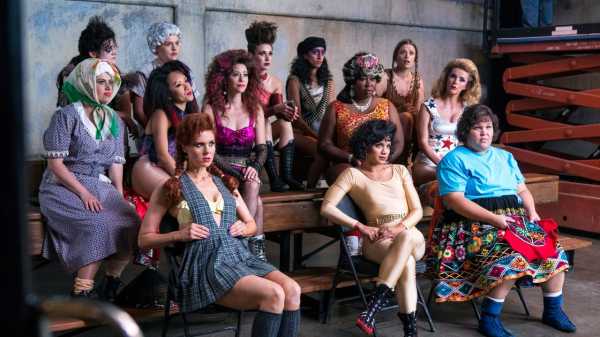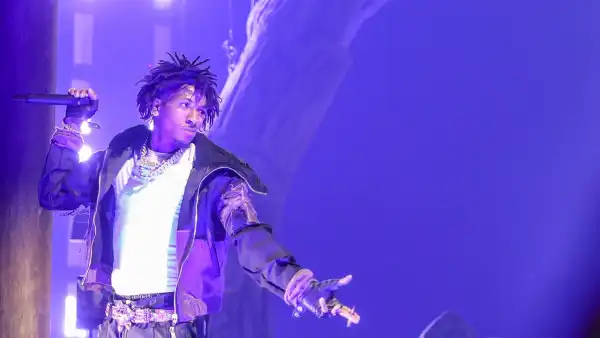
The first episode of Season 2 of “GLOW,” on Netflix, depicts the production of a title sequence for the show-within-the-show: a low-budget, all-woman pro-wrestling spectacle for a local cable network in the San Fernando Valley. Ruth Wilder (Alison Brie), ever eager to assert an artistic vision, orchestrates a segment in which she and her colleagues wear their costumes (marvellous leotards, vigorous sneers) to mock-maraud across a shopping mall, from the food court to the beauty salon. When the shoot is complete, Ruth, who is also always looking for validation, fishes for a compliment from a new cameraman. “Do you think we really captured the nexus of girl-on-girl violence and consumer culture in America?” she asks. “Oh, no, it was way dumber than that,” he says.
The beauty of “GLOW” is its clever approach to way-dumbness. Embracing silliness without apology and cliché without self-consciousness, the series invites viewers to disable their senses of irony. It is best apprehended as a decadent descendant of vaudeville spectacle, which helps to account for its mood swings, to excuse the scattered quality of its action, and to explain the high spirits of its low-culture bricolage.
In the ring, Ruth channels her ample thespian pretensions into the persona of Zoya the Destroyer, a Soviet villain with the accent of Yakov Smirnoff and the symbolic import of Ivan Drago. Her ex-best friend, Debbie Eagan (Betty Gilpin), formerly a soap-opera starlet, takes to the squared circle as Liberty Belle, a heroine brandishing an apple-pie smile, a clover-honey speech cadence, and a star-spangled wardrobe. Archfrenemies and enduring symbionts, united in their hope and desperation, the two were friends until Debbie learned that Ruth had slept with Debbie’s husband. (We’ve spent enough time with the husband to understand that Ruth, on some level, was more motivated by a desire to betray Debbie, with her beauty-queen looks and careerist savvy, than by emotional connection or carnal passion.) Their director, Sam Sylvia (Marc Maron), a schlock auteur whose neediness and reluctant decency mitigate his manifest skeeviness, had a vision. It hit him as Debbie, barging onto his set, walloped Ruth after discovering the infidelity. For Sam, the catfight was a rough draft of a grandiloquent scene: sequins and satins, bootlaces and turnbuckles, G-rated sex and A-plus cartoon violence.
In the second season, Debbie is separated from her husband, alienated from herself, and suffering a steady emotional descent. (She reaches bottom in this season’s sixth and best episode; its slow build to a mean shock is dreadfully tense, and the moment of Debbie’s break with good sense is edited for devastating impact.)
The relationship between Ruth and Debbie remains the site of the show’s only sustained seriousness; in the main, the new season of “GLOW” deepens its commitment to presenting a camp eighties pageant. It unpacks the tropes and cultural markers of the era and fondly repackages nostalgia by celebrating the enchantment of performance and the giddy adventure of amateurism. Episode 3 includes an inexplicable plot in which Cherry (Junkchain) Bang (Sydelle Noel), a stunt double turned wrestling star, flails badly when cast as a police detective on a “Cagney & Lacey” knockoff. (If her acting is as incompetent as depicted, how did she make it out of the first audition?) The same episode finds Debbie and Ruth creating an inept public-service announcement, and elsewhere it includes a constipation joke that it is almost tempting to deem beneath the show.
But “GLOW” does not put on airs—nothing human is beneath it, as evidenced by the season’s eighth episode, all but thirty seconds of which is given over to a flamboyantly awful installment of the show-within-the-show. After a network executive relegated the series to a 2 A.M. time slot, Sam and the performers take advantage of their creative freedom to pursue weirdness, and we are asked to survey the rotten fruit of their labor. This is an extreme case of the jubilation “GLOW” takes in rummaging through trash. The show is against self-seriousness; there is a proud defiance in its period-appropriate froth. Consider Episode 9, which takes a couple shortcuts to bring Sam and Ruth to a high-school dance, where these two chaperones slow-dance to “Crazy for You” and sway in Madonna’s breathiness and encourage your heart, against all good sense, to leap up into your throat. “GLOW” doesn’t elevate kitsch values; it frolics among them.
Sourse: newyorker.com






